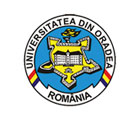The Evaluation of Cross-Border Cooperation in the EU
Secțiunea curentă: Courses
17 iunie 2015
The evaluation of cross-border cooperation
Familiarizing students with issues regarding public policy and programs evaluation with focus on cross border cooperation and its impact in improving governance. The course aims to offer students theoretical and methodological knowledge towards working on their own study in the field.
Academic aim:
- Introducing students to the main themes and theories on public policy and program evaluation;
- Understanding different approaches in evaluation;
- Internalizing theoretical aspects for use in evaluating policy, public programs, a European structural instrument that works on a cross border level.
Learning objectives: the course is aimed at developing theoretical knowledge useful in understanding the main theories, types and methods of evaluation, the ability to explain in interpret evaluation, the ability to come up with adequate models for public policies and programs based on the models and information studied during the course, the ability to use a technical and logical approach to creating analytical documentation used in the evaluation of public policies and programs, understanding and applying standards that are professional, ethical and defined by integrity, tahe ability to work in groups and generate constructive, empathicand integrative action and to manifest reflection and propensity in the field of public policies and programs evaluation.
Structure of the course:
- The Importance of Evaluation
- Steps of the evaluation process:
- identifying evaluation opportunities;
- the decision to evaluate;
- creating the evaluation design;
- bugetarea evaluării;
- contractarea evaluării;
- culegerea informaţiilor;
- information analysis and sumary;
- communicating the evaluation results;
- metaevaluation;
- Evaluation models:
- Evaluations based on models (social experiment – Campbell, Suchman; cost-gain analysis Kee, Levin, Tsang;)
- Study cases – Stake; mixt methods – Tyler);
- Evaluations based on program theory – Chen;
- Evaluations based on promoting social agenda (concentrated on the client – Stake; constructivism / the 4th generation of evaluation – Lincoln, Guba);
- Evaluations concentrated on improvement and responsability (CIPP – Stufflebeam; UTOS – Cronbach; centered on the consumer – Scriven);
- Eclectic evaluations (evaluation based on use – Patton); 5th generation evaluation.
- Theories of public policies and programs evaluation:
- normative and causal;
- positive vs. constructive;
- scientific approach vs stakeholder approach;
- evaluation as interpretation / giving verdicts vs. evaluation as a measuring process.
- Types of evaluation approaches: summative and formative;
- ex ante, interim and ex post evaluations;
- Internal and external evaluations; normative evaluations (results evaluations, implementation evaluations, intervention mechanisms evaluation etc.)
- Causal evaluations (impact: intentional and unintentional results etc.);
- Study cases on cross border cooperation evaluation.
Bibliography:
- Caulley, Darrel N. (1993): Overview of approaches to program evaluation: The five generations, în Guthrie, J. (Ed.), The Australian Public Sector: Pathways to change in the 1990s, North Sydney: IIR Conferences Pty Ltd.,
- Chen, Huey-Tsyh (2005): Practical Program Evaluation: Assessing and Improving Planning, Implementation and Effectiveness, Sage, Thousand Oaks,
- Chen, Huey-Tsyh (1994): Theory-Driven Evaluations, Sage, Newbury Park,
- Guba, Egon G. şi Lincoln, Yvonna S. (1989): Fourth Generation Evaluation, Sage, Newbury Park,
- House, Ernest R. şi Howe, Kenneth R. (1999): Values in Evaluation and Social Research, Sage, Thousand Oaks,
- Stufflebeam, Daniel L. şi Shinkfield, Anthony J. (2007): Evaluation Theory, Models, and Applications, Jossey-Bass, San Francisco,
- Shadish, W.R.; Cook, Th.D.; Leviton, L.C. (1991): Foundations of program evaluation: theories of practice, SAGE, Newbury Park
- Ioan Horga, Constantin – Vasile Ţoca, Florentina Chirodea, Evaluarea cooperării transfrontaliere la frontierele României, Editura Primus, Oradea, 2013,
- Ioan Horga, Constantin Vasile Ţoca, Evaluarea cooperării teritoriale europene , Editura Universităţii din Oradea, Oradea, 2013,







